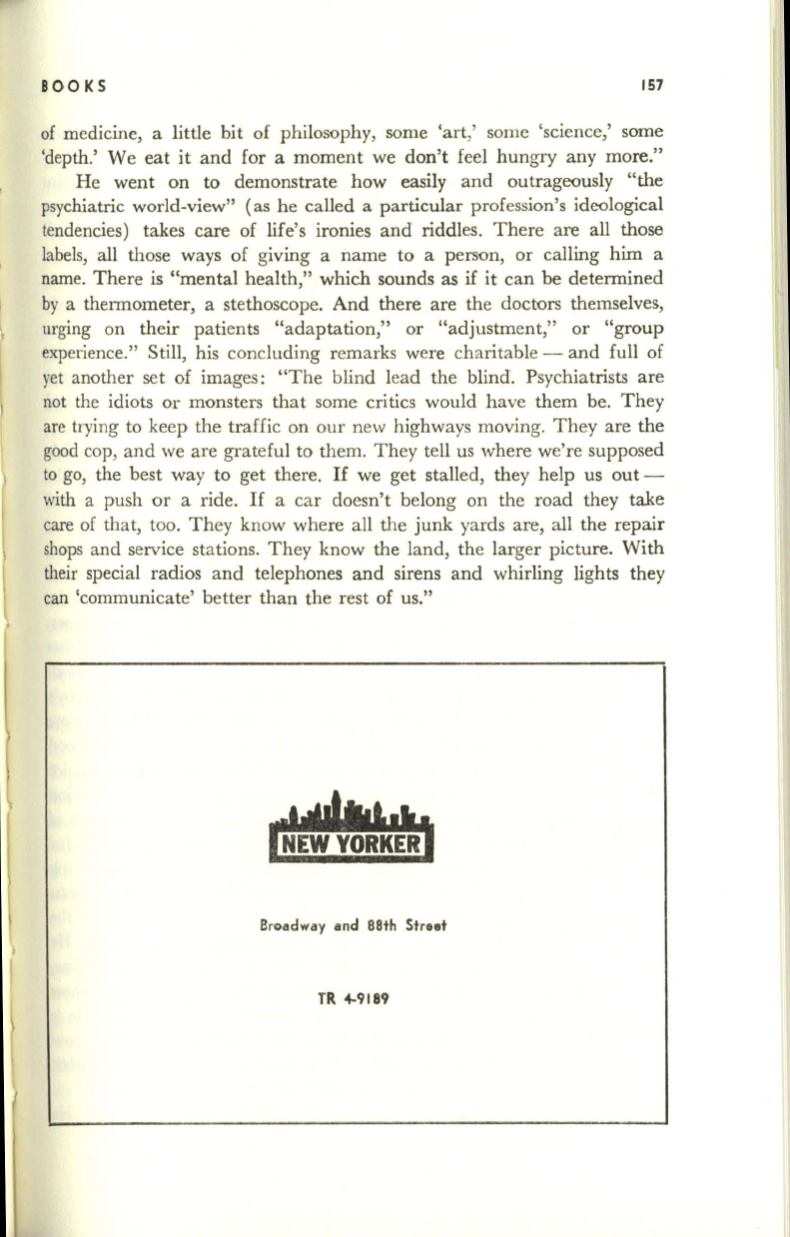
BOOKS
157
of medicine, a little bit of philosophy, some 'ar t,' some 'science,' some
'depth.' We eat it and for a moment we don't feel hungry any more."
He went on to demonstrate how easily and outrageously "the
psychiatric world-view" (as he called a particular profession's ideological
tendencies) takes care of life's ironies and riddles. There are all those
labels, all those ways of giving a name to a person, or calling him a
name. There is "mental health," which sounds as if it can
be
determined
by a thermometer, a stethoscope. And there are the doctors themselves,
urging on their patients "adaptation," or "adjustment," or "group
experience." Still, his concluding remarks were charitable - and full of
yet another set of images : "The blind lead the blind. Psychiatrists are
not the idiots or monsters that some critics would have them be. They
are trying to keep the traffic on our new highways moving. They are the
good cop, and we are grateful to them. They tell us where we're supposed
to go, the best way to get there.
If
we get stalled, they help us out–
with a push or a ride.
If
a car doesn't belong on the road they take
care of that, too. They know where all the junk yards are, all the repair
shops and service stations. They know the land, the larger picture. With
their special radios and telephones and sirens and whirling lights they
can 'communicate' better than the rest of us."
Broadway and 88th Street
TR 4-9189


